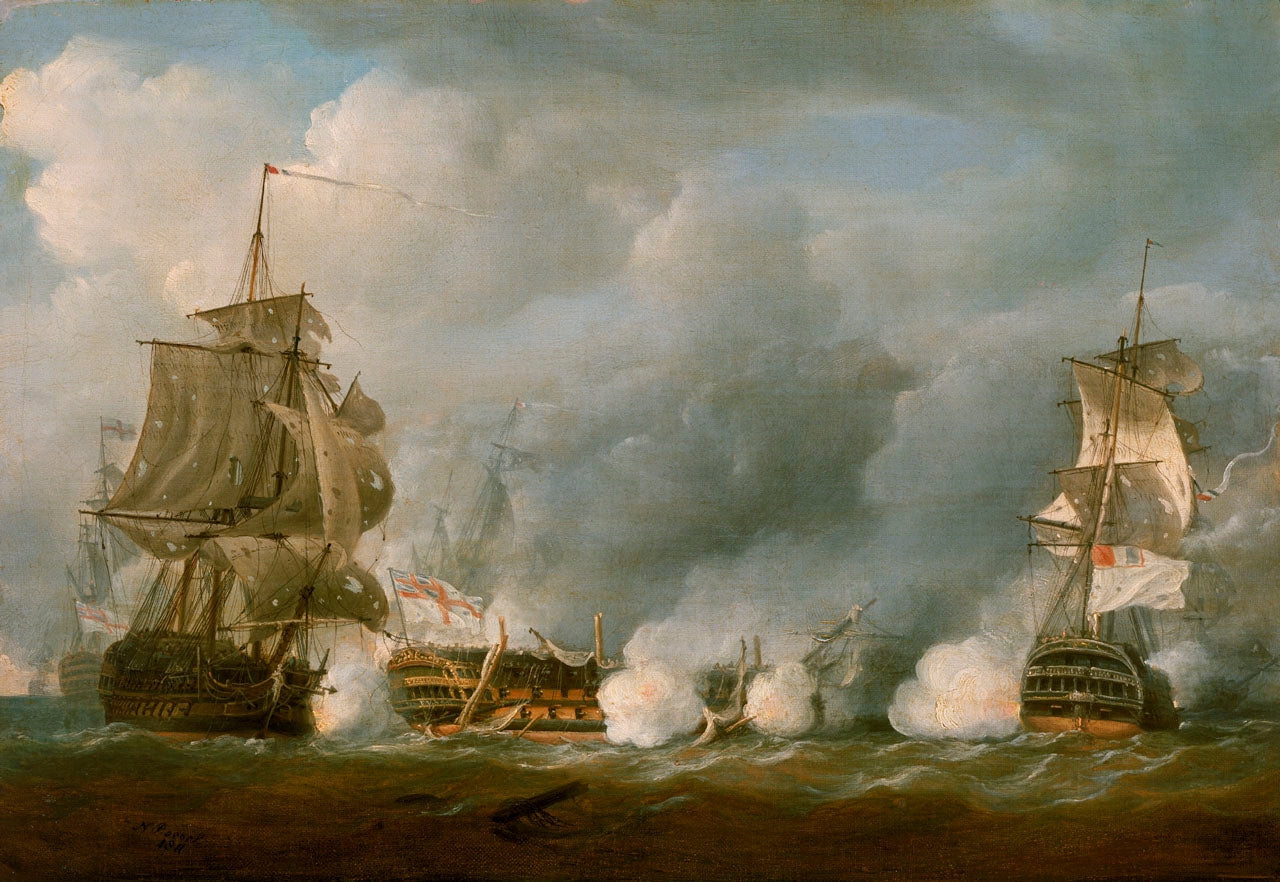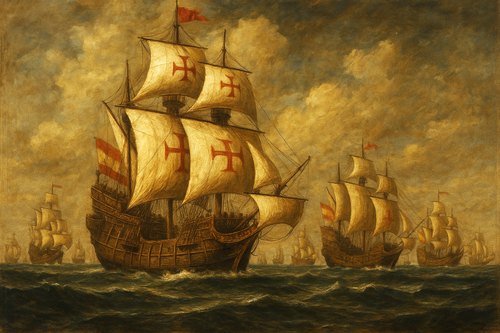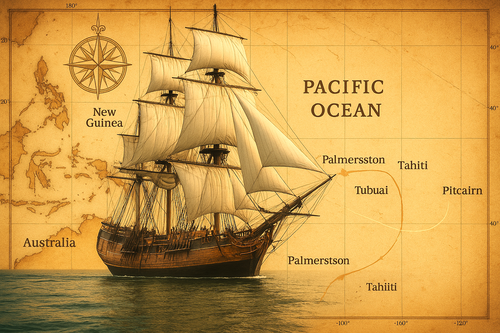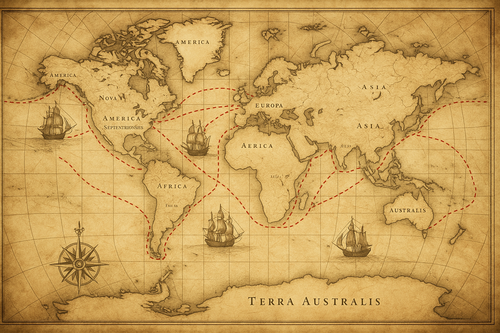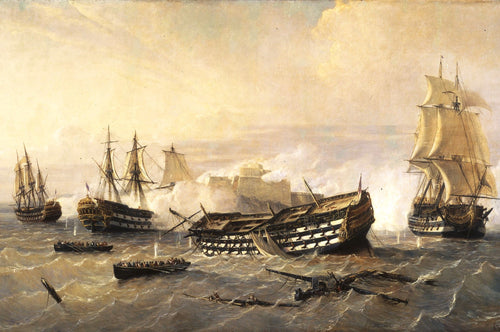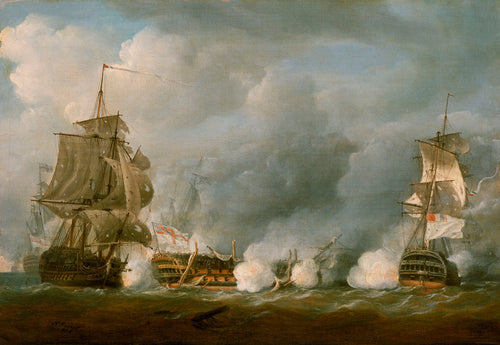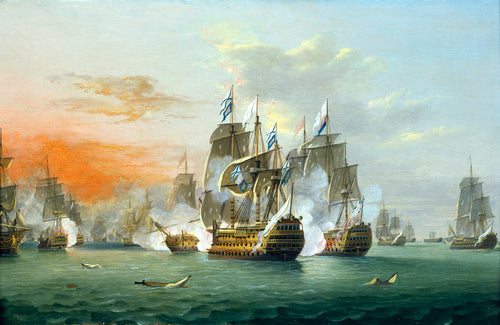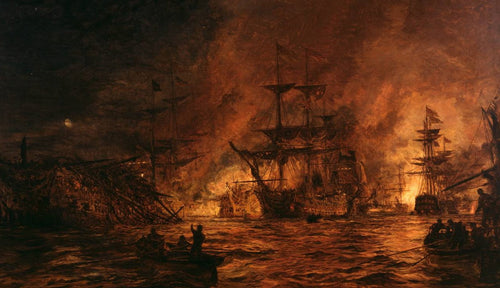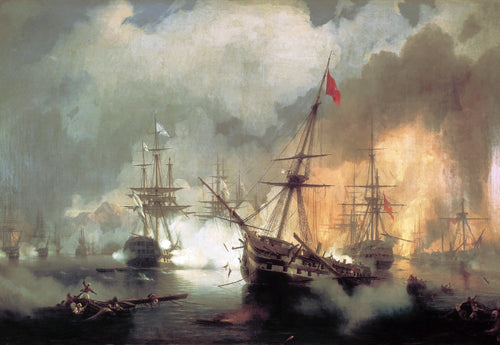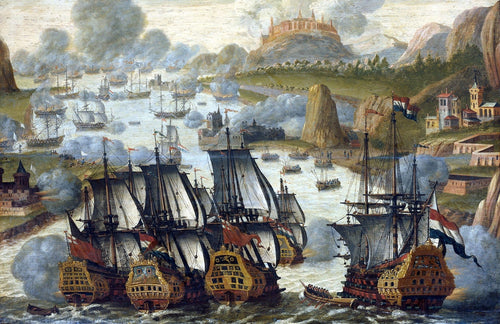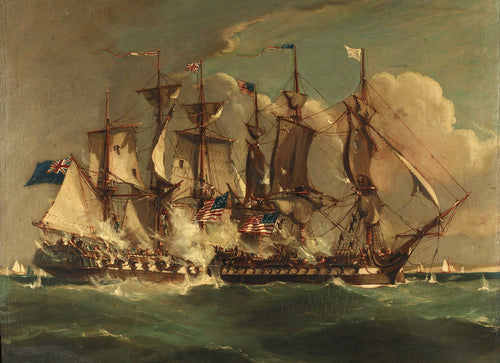The Battle of the Glorious 1st June, also known as the Battle of Ushant, was a naval battle fought between the British and French fleets during the French Revolutionary Wars. The battle took place on June 1, 1794, in the waters off the coast of Ushant, a small island off the coast of Brittany, France.
The British fleet, led by Admiral Lord Howe, consisted of 26 ships of the line and 8 frigates, while the French fleet, led by Vice Admiral Louis Thomas Villaret de Joyeuse, consisted of 26 ships of the line and 8 frigates. The French fleet was tasked with protecting a convoy of merchant ships from the West Indies, while the British fleet was charged with intercepting and destroying the French fleet.
 (The 'Brunswick' and the 'Vengeur du Peuple' painted by Nicholas Pocock (1740-1821) - Buy Print
(The 'Brunswick' and the 'Vengeur du Peuple' painted by Nicholas Pocock (1740-1821) - Buy Print
The battle began in the early morning hours of June 1, with the two fleets engaging in a series of maneuvers to gain the upper hand. The French fleet initially had the advantage, as it was able to use the wind to outmaneuver the British fleet and make it difficult for them to close in for battle.
However, the British fleet was able to turn the tables by using a tactic known as "crossing the T." This involved positioning the British ships in a line perpendicular to the French line, which allowed them to fire broadsides at the French ships while remaining relatively unscathed. The battle lasted for several hours, with both sides sustaining heavy losses. The French lost seven ships of the line and two frigates, while the British lost one ship of the line and one frigate. The French convoy was able to escape, but the French fleet was left severely weakened.
 (Lord Howe on the Deck of the Queen Charlotte by Mather Brown (1761–1831)
(Lord Howe on the Deck of the Queen Charlotte by Mather Brown (1761–1831)
The Battle of the Glorious 1st June was a significant victory for the British, as it allowed them to gain control of the seas and establish their dominance over the French fleet. The victory was celebrated throughout Britain, and Admiral Howe was hailed as a hero for his role in the battle. The battle also marked a turning point in the French Revolutionary Wars, as it demonstrated the superiority of the British navy and undermined French confidence in their ability to win the war. The victory helped to bolster British morale and provided a much-needed boost to their war effort.
In conclusion, the Battle of the Glorious 1st June was a decisive victory for the British, which had a significant impact on the outcome of the French Revolutionary Wars. The battle is remembered as a testament to British naval power and strategy, and it continues to be studied by historians and military strategists today.
